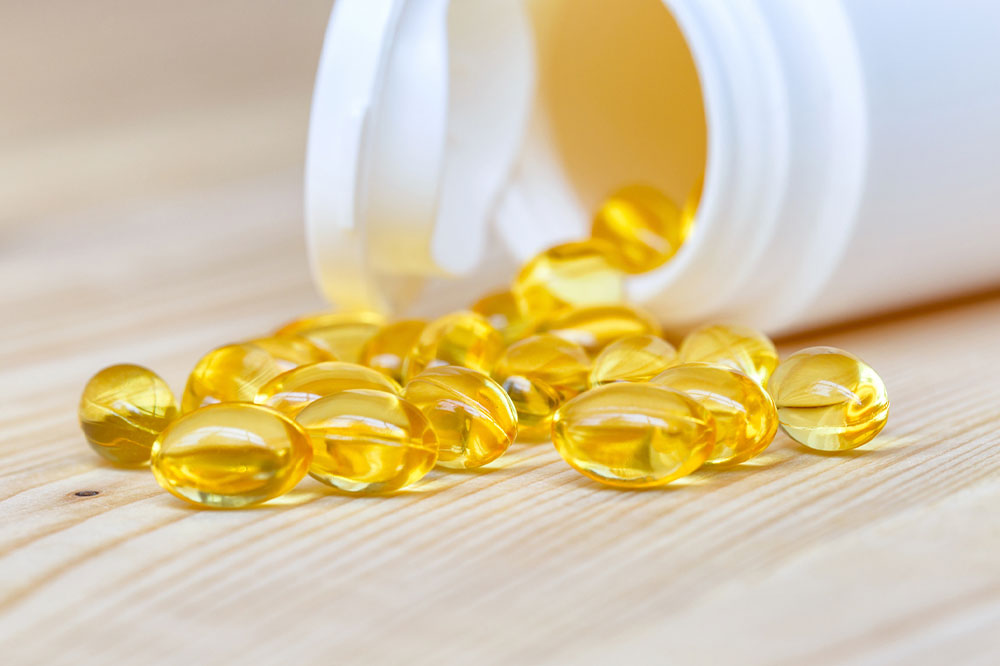Things to know about vitamins and supplements
Vitamins are carbon or organic compounds gained from certain food eaten by individuals. The human body requires these compounds for proper functioning. Thus, vitamin deficiencies can increase the body’s vulnerability to certain health conditions and diseases. A nutrient-rich meal plan can mostly take care of the body’s requirements; however, in some cases, one needs an additional nutrient boost via supplements. This article discusses four things you should know about vitamins and vitamin supplements.

Things to know about vitamins and supplements
There are 13 recognized vitamins, and all of them have numerous supplements. The names, benefits, and deficiencies are as mentioned below:
Vitamin A/Retinol
Good for the eyes, this fat-soluble vitamin comes from veggies like carrots, pumpkins, cheese, milk, etc. Its deficiency can cause night blindness. The Adequate Intake (AI) daily value is 700 mcg.
Vitamin B1 or Thiamine
The water-soluble vitamin boosts energy. Cereal grains, oranges, cauliflower, and asparagus are rich sources of it. A deficiency of vitamin B1 can cause diseases like beriberi. The daily AI is 1.1 mg.
Vitamin B2 or Riboflavin
This water-soluble vitamin plays a significant role in metabolism. Foods like bananas, milk, yogurt, and green beans are rich sources. A deficiency of vitamin B2 inflames the lips and causes fissures. The daily AI is 1.1 mg.
Vitamin B3 or Niacin
This is also a water-soluble vitamin. Niacin is good for cell growth and functioning. Food items containing high vitamin B3 content are broccoli, nuts, tofu, and lentils. A niacin deficiency results in Pellagra, and the daily AI is 14 mg.
Vitamin B5 or Pantothenic acid
Vitamin B5 keeps the body energetic. The water-soluble vitamin can be gotten from whole grains and avocados, among other food sources. An inadequacy in its levels leads to paresthesia. The daily AI is 5 mg.
Vitamin B6 or Pyridoxine
This water-soluble vitamin is crucial for RBC formation. A deficiency can cause anemia. Bananas, chickpeas, tofu, nuts, etc., are good sources of vitamin B6. The daily AI is 1.3 mg.
Vitamin B7 or Biotin
Biotin helps in keratin formation and metabolizes various constituents like proteins and carbs. The water-soluble vitamin is found in veggies like spinach and broccoli. Lack of biotin can result in dermatitis. The daily AI is 30 mcg.
Vitamin B9 or Folic acid
This water-soluble vitamin is key to making DNA. Folic acid, found in leafy veggies, seeds, peas, and fortified grains, helps develop the nervous system of a fetus during pregnancy. The daily AI is 400 mcg.
Vitamin B12 or Cyanocobalamin
Vitamin B12 is needed to develop the nervous system. It is water-soluble and found in dairy products, fortified cereals, soy products, and more. Lower levels of vitamin B12 can cause neurological issues. The daily AI is 2.4 mcg.
Vitamin C or Ascorbic acid
Several fruits and vegetables are rich in vitamin C, and this water-soluble vitamin helps bone formation and strengthens the immune system. A deficiency in its levels can cause delays in wound healing. The daily AI is 75 mg.
Vitamin D or Ergocalciferol
This is a fat-soluble vitamin required for bone mineralization. Insufficient vitamin D leads to osteomalacia and rickets. The best source of this vitamin is the sun and the daily AI is 15 mcg.
Vitamin E or Tocopherol
Vitamin E helps prevent oxidative stress in the body. It is fat-soluble and the deficiency can lead to blood cell destruction and hemolytic anemia in babies. Foods like kiwis, nuts, leafy vegetables, and oils contain Vitamin E. The daily AI is 15 mg.
Vitamin K or Phylloquinone
This fat-soluble vitamin is important for blood clotting. Rich sources of the same are figs and parsley. A vitamin K deficiency can cause bleeding diathesis, and the daily AI is 90 mcg.
The difference between vitamins and supplements
Vitamins are naturally-occurring organic compounds. Supplements are manufactured either from synthetic or natural compounds.
Vitamins are a part of the daily diet as food components. Supplements are not food components.
There are 13 known types of vitamins, while there are innumerable types of supplements.
Vitamins help co-enzymes in regulating metabolism. Supplements help different biomolecules, like energy or body-building molecules to work better.
In excess, vitamins and supplements can be problematic for the body. That said, deficiencies can be the root cause of many diseases. For example, vitamin A deficiency can cause sight-related issues, but too much can lead to nausea, dizziness, sometimes coma, and more fatal results.
How to choose the right supplements?
People with specific ailments or in certain stages of their lives need to have supplements as prescribed by their doctor, although most healthy people get the required dose from their meals. Pregnant ladies, the elderly, infants, underprivileged people, and people with special needs or undergoing treatment are in the former category. When choosing a supplement, it is best to:
Speak to a health expert.
Take into account the requirements of your ongoing condition and treatment. Check the label for interactions.
Check the recommended Daily Value (DV) or AI of each vitamin type and ensure that your daily intake does not exceed the DV/AI. Check the label for ingredients and % values.
Buy and consume supplements that have a seal of approval from a regulatory body.